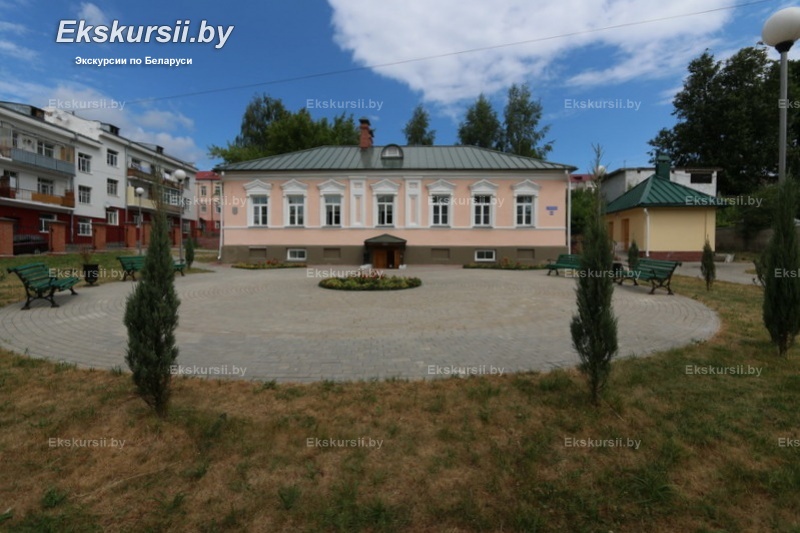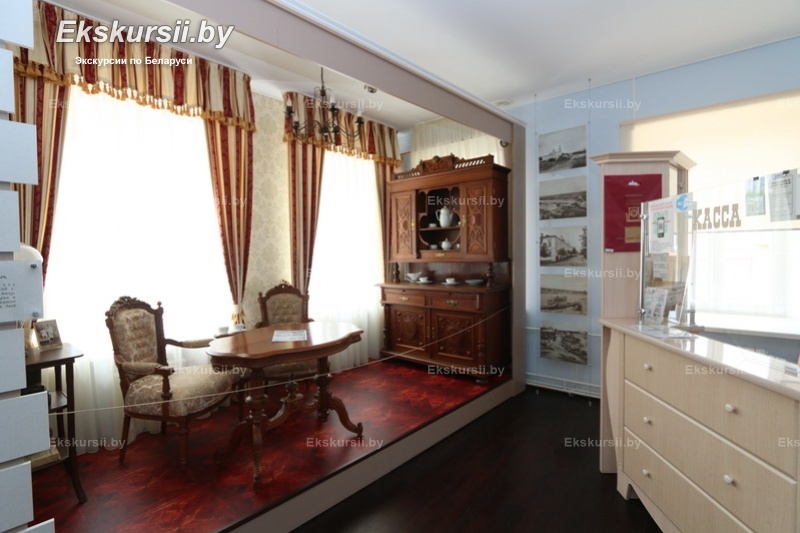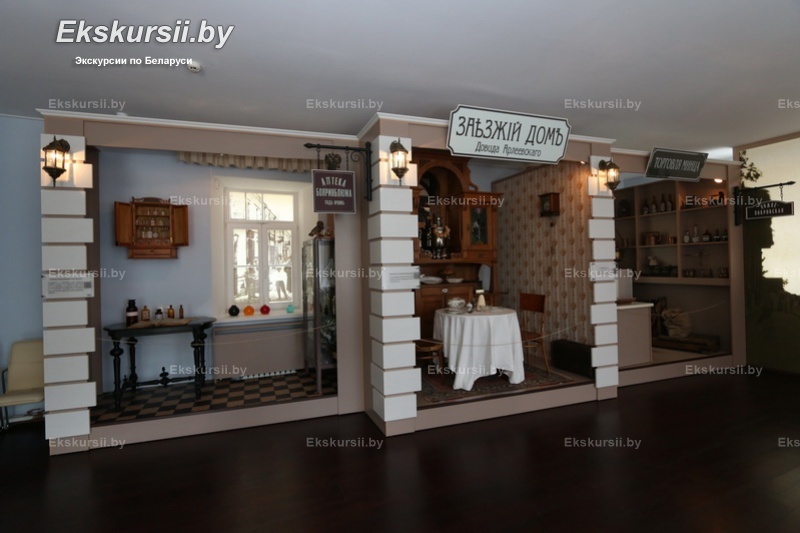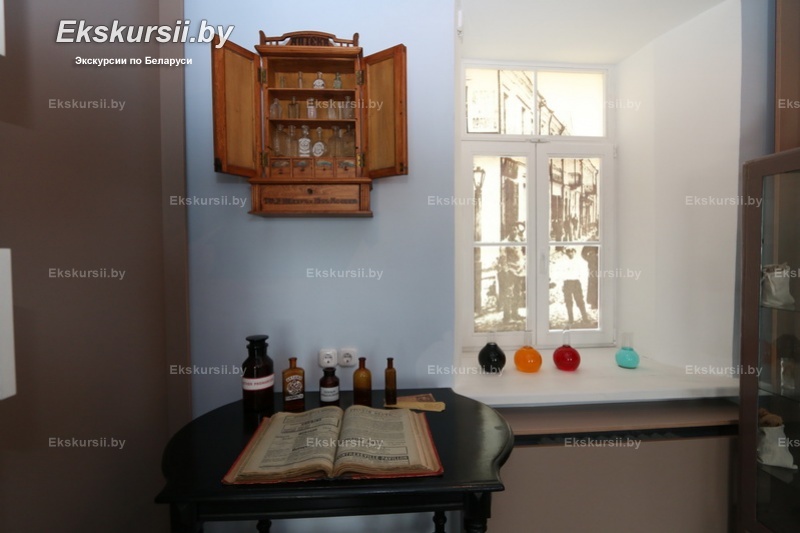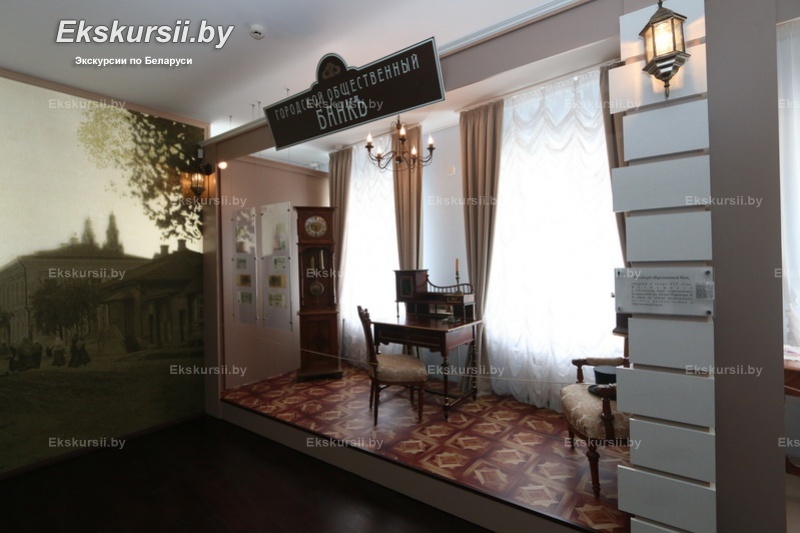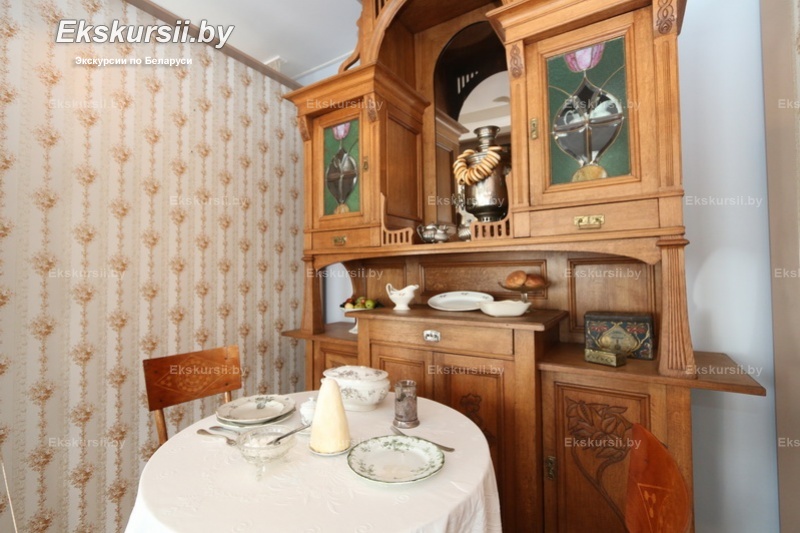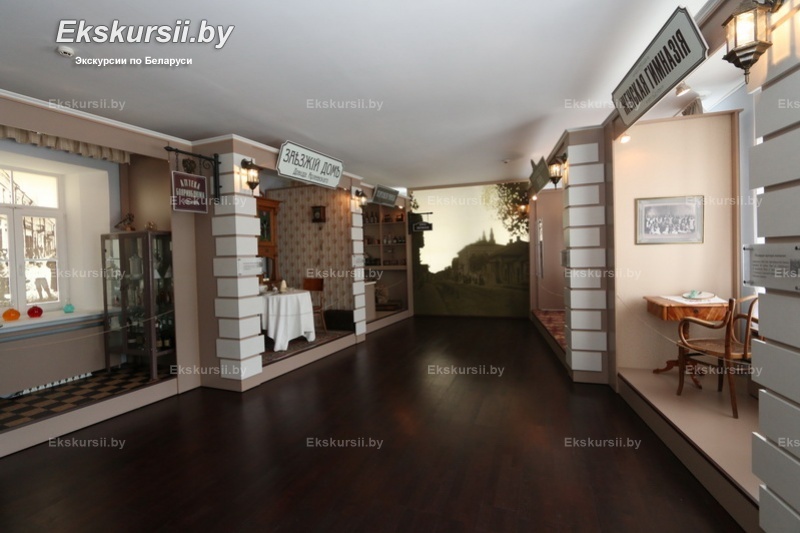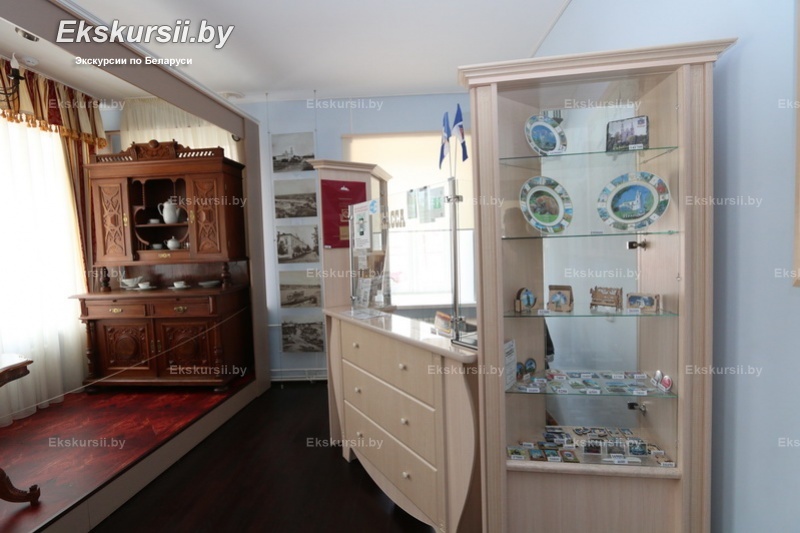The exhibition is open to the monument of architecture of the XVII century "House of Peter I". The building was built in 1692 in Baroque style. In this house lived the great Russian autocrat during the Northern War. Later the building was repeatedly repaired and rebuilt. During the Great Patriotic War, House of Peter I suffered a lot, but was rebuilt after the war. The street was named Lower Intercession in 1781 after the end of the street was built Intercession Church. The temple burned a few times, Polochans attempted to recover it, however, the church managed to recover only in our time.
Polotsk stationary exhibition ”A Walk on the Lower Intercession”
museums
Description
Stationary exhibition "A Walk on the Lower Intercession" opened in May 1998 in the architectural monument of the XVII century - in House of Peter I. Exposure is based on a valuable and meaningful monument museum in 1910 - "Guide to the city of Polotsk" published in Polotsk in connection with the transfer of the relics of St. Euphrosyne of Polotsk from Kiev, and is the first and only one in Belarus, an exhibition devoted to the history of one street in a certain period time (1910). The exhibition introduces the history of the streets of Lower Intercession, tells about the people who lived on this street, what they were doing, looked like that were eating and drinking, were treated as what to buy and how to meet visiting guests of the buildings and facilities that were there at the time. The museum is a branch of the National Polotsk Historical and Cultural Museum-Reserve (NPIKMZ). This is the first in Belarus monographic exhibition on the history of one street. Exhibition area is 97 square meters. Exhibited 227 exhibits. Here you can see the old aristocratic and bourgeois interiors of houses, hotels (coaching house) Dovid Arleevskago, pharmacy, public city bank, "Trade Mints." Each exposure is replete with rare antiques and reconstituted as a city guide Polotsk in 1910. In the exhibition hall of the exhibition works as "The River Western Dvina and trade ties Polotsk."
Exposure
House of Peter I сonstruction began in the middle of the XVII century, probably after the fire of 1643. Originally it was a wooden building on a high, perhaps whitewashed brick plinth with a large basement and a garbage disposal. End of the building overlooked the "red line" of the street that led to the river. Next to it retains the old wooden house on a high basement c directly attached barn and another house. Together they formed the homestead. During the Russian-Polish war of 1654-1667. farmstead was hit hard. Thus, the wooden houses have been destroyed, and he suffered House of Peter I.. Wooden floor was destroyed, rebuilt only in 1692 already out of bricks. In this partially shifted wall socket, changed shape of window and door openings basement finished top of the building brick with stucco pediment. Entrance to the house could be on the north side through a wooden outhouse. Behind the building was built a new house with a stove, the walls of which were used tiles, made before the war. The new house was a log cabin on the pads and have not had a cellar. At the same time, following the extension of st. Great (the future of Lower Intercession) and prirezki remaining territory was carried out throughout the redevelopment of the estate and its extension through the elimination of the neighboring estates, adjacent to the south. According to the findings of tiles with the emblem "Ostoja" in place of wooden houses, House of Peter I could belong to the genus known in the Polotsk region Grebnitskih. New repair the Cabin of Peter I is associated with the arrival in Polotsk Empress Catherine II in 1780 it concerns mainly the replacement of furnaces and installation of a memorial plaque dedicated to Peter I stay here. Attention is drawn to the unusual architecture of the building makes it stand out from other buildings of Polotsk. For example, in a report in 1837, it is called the Dutch (Peter I loved the Dutch architecture). We know of the building emerged during the second half of XIX - early XX centuries. At the time of the building of the "Dutch Architecture" on the "red line", he turned to a more modest residential building. No changes have been smaller and the whole estate. Its borders were again expanded. Wooden buildings burned more than once and again rebuilt, and in the middle of the twentieth century. completely disappeared.
Working hours
Administration 10:00 - 18:00 weekend Monday
Cash 10:00 - 18:00 weekend Monday
Exposure 10:00 - 18:00 weekend Monday
On the map
Address
211400, Republic of Belarus, Vitebsk., Polotsk, st. Lower-Intercession, 33
Coordinates
Choose where to continue
Ekskursii.by
Google Chrome
